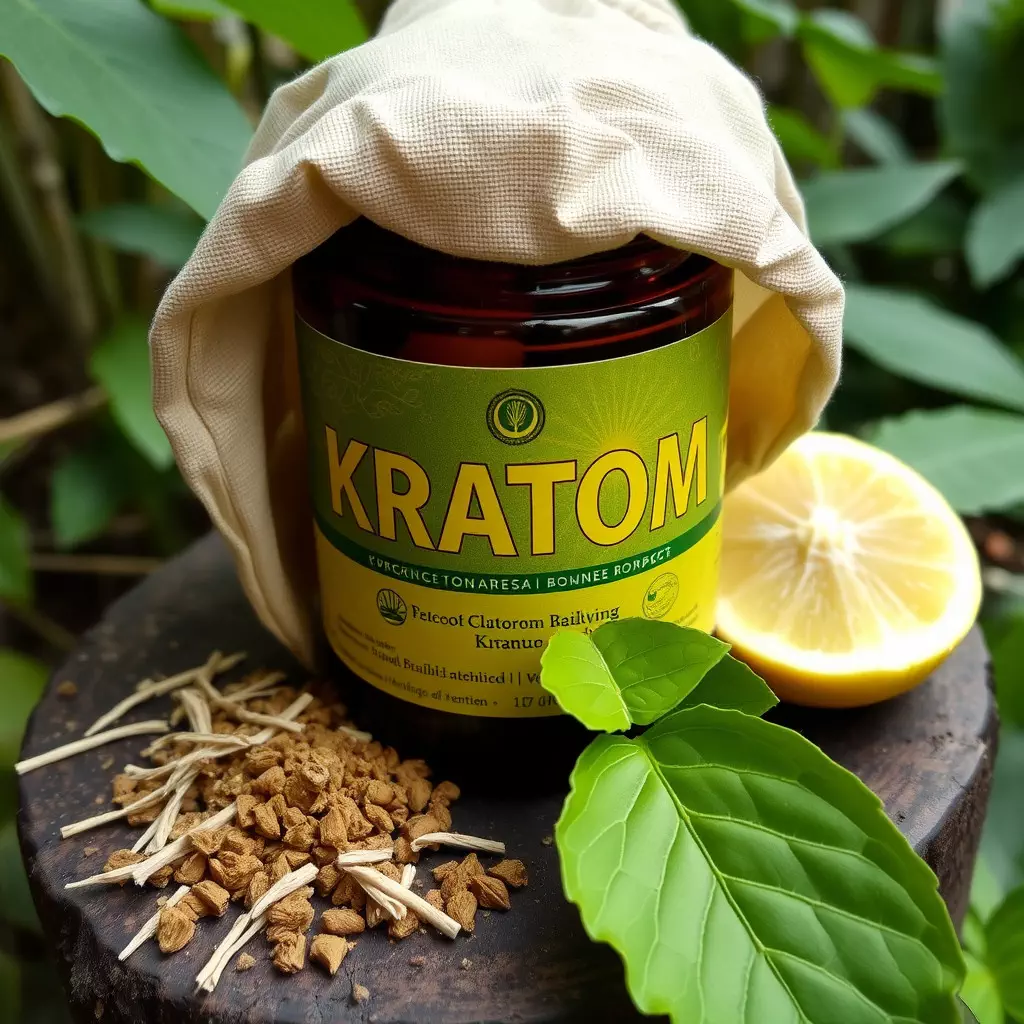2023 has seen kratom, an herbal supplement derived from Southeast Asia's Mitragyna speciosa tree, gain attention among athletes for its potential benefits in post-exercise recovery. In Colorado, the legal status of kratom is subject to state and local regulations, with the DEA having classified it as a Schedule I controlled substance in February 2021, but Colorado has not followed this classification. Athletes must verify the current legal status at both state and local levels due to potential jurisdictional differences within Colorado, such as city ordinances and state regulations that govern kratom's sale and use. Kratom's active alkaloids may offer pain relief and anti-inflammatory effects by interacting with opioid receptors, which could be beneficial for athletes seeking to manage muscle soreness or fatigue. However, its psychoactive nature and lack of comprehensive clinical research necessitate a cautious approach, with consultation with healthcare professionals being crucial for safe usage. Athletes interested in kratom as part of their recovery routine should stay informed about local laws and use it responsibly under medical supervision to ensure legality and safety. It's important to remember that the effects of kratom are highly individualized and can vary based on dosage, strain, and personal body response. Athletes in competitive sports must also adhere to the rules of governing bodies regarding supplement use. A responsible and informed approach to using kratom is essential for optimizing athletic recovery within Colorado's sports-centric culture.
Exploring the intersection of natural supplementation and athletic performance, this article delves into the role of kratom in optimizing recovery for athletes. As the question “is kratom legal in Colorado?” gains traction among sports enthusiasts, understanding its effects becomes paramount. We’ll examine kratom’s influence on muscle soreness and fatigue reduction, followed by a guide on crafting an effective kratom coaching plan tailored for Colorado’s athletic community. This exploration aims to shed light on the potential benefits of kratom within the legal framework it operates in.
- Exploring the Legal Status of Kratom in Colorado and Its Role in Athletic Recovery
- Understanding Kratom's Effects on Muscle Soreness and Fatigue Reduction
- Developing a Kratom Coaching Plan for Optimal Athletic Recovery in Colorado
Exploring the Legal Status of Kratom in Colorado and Its Role in Athletic Recovery

Kratom, a natural substance derived from the leaves of the Mitragyna speciosa tree native to Southeast Asia, has garnered attention within the athletic community for its potential role in recovery. As of the knowledge cutoff in 2023, the legal status of kratom in Colorado is subject to ongoing regulatory scrutiny. While the federal government has expressed concern over its safety and classified it as a Schedule I controlled substance under the Supplementary Security and Byzantine Act (the DEA final rule was issued in February 2021), states like Colorado have approached this matter with varying perspectives. As of the latest updates, kratom remains legally available in Colorado, with specific city ordinances or state regulations dictating its sale and use. Athletes interested in incorporating kratom into their recovery routines should first verify its legal status at both the state and local levels, as regulations can change and may differ by jurisdiction within the state.
In terms of athletic recovery, kratom’s alkaloids, particularly mitragynine and 7-hydroxymitragynine, are believed to interact with the body’s opioid receptors, potentially offering pain relief and anti-inflammatory effects. This can be beneficial for athletes recovering from muscle strain or injury, as it may aid in managing post-exercise soreness without the side effects associated with traditional pain medications. Additionally, some users report that kratom promotes a sense of well-being and mental clarity, which can be conducive to a balanced recovery process. However, it is crucial for athletes to approach the use of kratom with caution due to its psychoactive properties, potential for abuse, and the need for more clinical research to fully understand its effects on human health and performance. As such, any consideration of incorporating kratom into an athletic recovery regimen should be made under the guidance of a qualified healthcare provider, ensuring adherence to local laws and safety protocols.
Understanding Kratom's Effects on Muscle Soreness and Fatigue Reduction

Kratom, a botanical derived from the leaves of Mitragyna speciosa, has garnered attention in athletic communities for its potential impact on muscle soreness and fatigue reduction. When considering the legality of kratom, it’s important to consult current local laws; as of the knowledge cutoff in 2023, kratom is legal in Colorado, but its status may change, and regulations can vary within the state. Athletes looking to incorporate kratom into their recovery routine should be aware of how this substance interacts with their bodies. Alkaloids found in kratom, particularly mitragynine and 7-hydroxymitragynine, have been studied for their analgesic properties, which may help alleviate muscle pain associated with rigorous training or competition. Additionally, some users report that kratom promotes a sense of well-being and vitality, which can be beneficial for individuals experiencing fatigue. The effects of kratom are subjective and can vary depending on the dosage, strain, and individual physiology; however, its application in athletic recovery is an emerging area of interest. Users should approach kratom with caution, as it can interact with other medications and has the potential for side effects. It’s also crucial to note that while kratom may offer benefits, it should be used responsibly as part of a comprehensive recovery strategy that includes proper nutrition, hydration, rest, and other evidence-based recovery methods. Athletes and coaches considering kratom for recovery should prioritize safety, legality, and compliance with any governing sports organizations’ rules regarding supplement use.
Developing a Kratom Coaching Plan for Optimal Athletic Recovery in Colorado

In Colorado, where athletic prowess is celebrated and sports enthusiasts abound, athletes are constantly seeking effective methods to enhance their recovery and performance. With the legal status of kratom being a point of discussion in the state—as it is legal at the federal level but subject to certain local regulations—athletes have shown interest in its potential benefits for post-exercise recuperation. Kratom, a plant-based compound derived from the leaves of Mitragyna speciosa, has garnered attention for its role in pain management, mood elevation, and energy modulation, all of which are critical components of athletic recovery. To harness these benefits responsibly, a tailored kratom coaching plan can be instrumental. This plan should be developed in consultation with healthcare professionals, as it involves dosage, timing, and strain selection to align with the athlete’s specific needs and goals. Coaches trained in this modality can guide athletes through their recovery phases, ensuring that kratom is used as a complementary tool rather than a standalone solution. They can also help monitor the effects and adjust the plan as necessary to maintain safety and efficacy. Incorporating kratom into a holistic recovery regimen that includes proper nutrition, hydration, rest, and other evidence-based practices can significantly enhance an athlete’s resilience and performance in Colorado’s active and competitive sports environment. Athletes interested in this approach should be well-informed about the legal status of kratom in their specific locale within the state and adhere to all local laws and guidelines when integrating it into their recovery strategy.
In Colorado, where the legality of kratom continues to be a topic of discussion and varies by municipality, understanding its role in athletic recovery can offer significant benefits for athletes seeking natural methods to enhance their performance and recovery. The article has delved into the multifaceted aspects of kratom’s effects on muscle soreness and fatigue reduction, providing insights into how it can be a potent ally for those looking to optimize their recovery processes. By developing a tailored kratom coaching plan within the bounds of legal use, athletes in Colorado have an opportunity to integrate this approach into their training regimen, potentially leading to improved athletic performance and overall well-being. As with any supplement, it is advisable for individuals to consult with healthcare professionals before incorporating kratom into their recovery strategy to ensure safety and efficacy.






